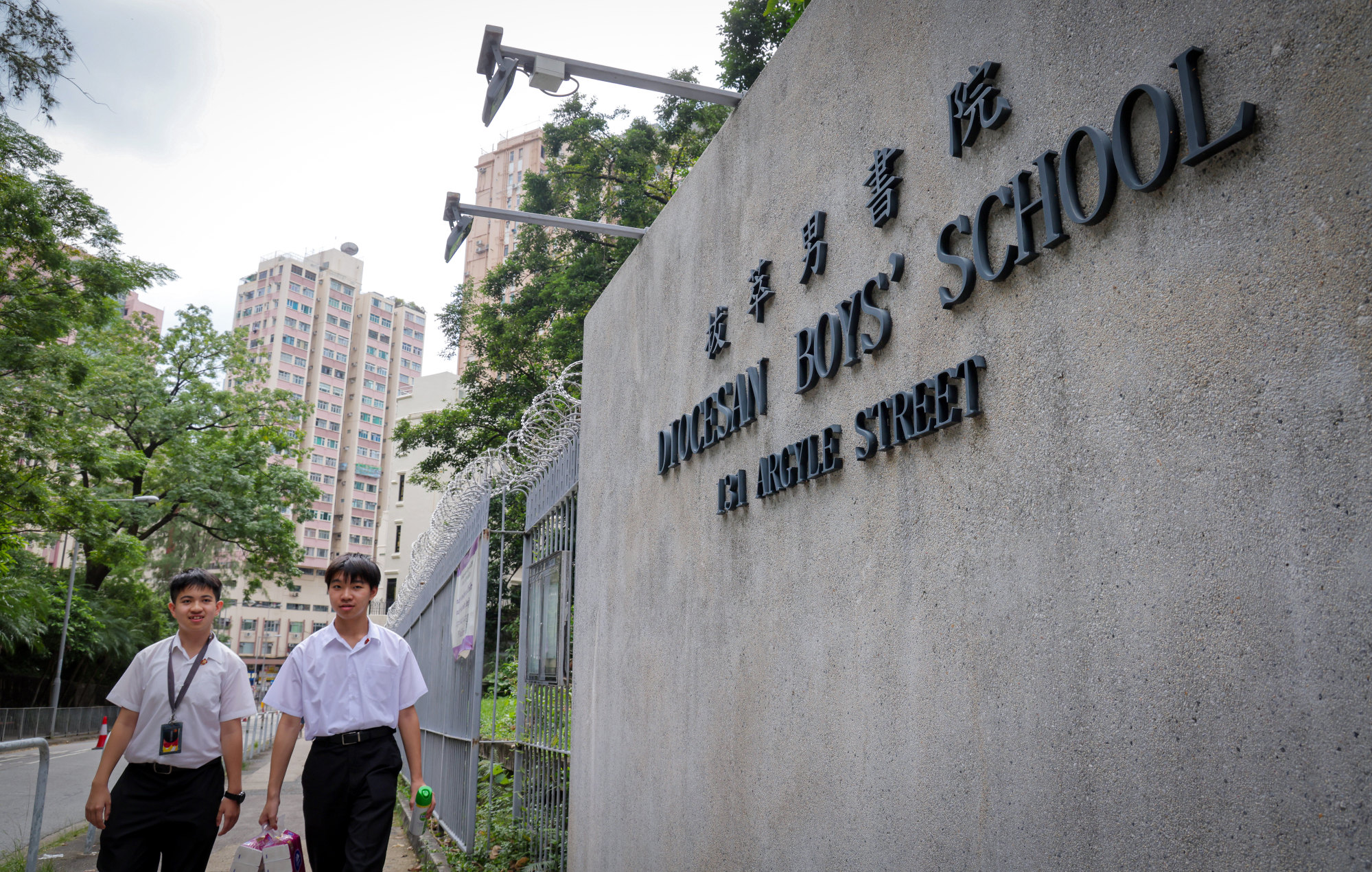
Hong Kong records uptick among semi-private schools seeking to raise annual fees, including top girls’ institution DGS
- Education Bureau says 54 semi-private schools under government’s direct subsidy scheme have applied to increase fees for next academic year, up from previous 49
- Prestigious Diocesan Girls’ School among DSS institutions seeking fee increase and hopes to raise annual tuition rates from HK$38,000 to HK$40,000
Hong Kong has recorded an uptick in the number of kindergartens and semi-private schools applying to increase their annual fees, including a top girls’ institution which has proposed raising rates by 5 per cent for the first time.
The Education Bureau said on Thursday that 54 semi-private schools under the government’s direct subsidy scheme (DSS) as of mid-May had applied to increase their fees for the next academic year starting in September, a rise from the 49 last year.
The number of preschools seeking a fee rise had also climbed to 660, surpassing the number recorded last year by 40.
A bureau spokeswoman also said 25 DSS schools had told education authorities that they would not adjust their fees.
About 310 kindergartens also opted to maintain their tuition fees, 30 fewer than last year, while one institution had applied for a fee reduction, she added.
“The Education Bureau will process the applications in accordance with established procedures and hopes to complete the vetting and approval procedures and notify the schools by the end of this school year,” the spokeswoman said.
The DSS scheme grants schools more flexibility in terms of their curricula and the ability to charge fees.
The prestigious Diocesan Girls’ School is among the DSS institutions that have applied to raise fees, with its own proposal aiming to increase tuition costs from HK$38,000 per academic year to HK$40,000.
The school has never applied to increase fees since joining the DSS scheme in the 2005-06 academic year, while other participating institutions have more than doubled their rates since that time.
A spokeswoman for DGS, the Diocesan Girls’ School, said its principal had been “exercising fiscal prudence” since joining the scheme, with its financial reserve and alumni contributions helping to keep its tuition fees steady over the years.
St Paul’s Co-educational College, another top DSS school, said it hoped to raise annual fees for Form One students from HK$72,400 to HK$79,700, representing an increase of about 10 per cent.
The institution’s primary school section also aimed to increase annual fees for Primary One pupils by 10 per cent, going up from HK$70,700 to HK$77,800.
The proposed increments from the two top schools are among some of the highest announced so far.
St Paul’s College in the Mid-Levels also applied to raise its annual fees from HK$41,400 to HK$44,000, an increase of 6.3 per cent.
Ying Wa College, an elite boys’ school in Sham Shui Po, also said it planned to increase fees for Form One students for 2024-2025 by about 7 per cent, but stopped short of sharing a figure.

Diocesan Boys’ School has proposed a 3.5 per cent increase in annual fees, which will see tuition costs go from HK$57,830 to HK$59,860.
A spokeswoman for the school in Mong Kok said it sought to adjust tuition fees to support the institution’s curriculum development and an upgrade of learning spaces.
The bureau said schools should consult parents and share the reasons behind the proposed fee increases as part of efforts to address any concerns.
Hong Kong Direct Subsidy Scheme Schools Council chairman Dion Chen, who is also the principal of Ying Wa College, said the uptick in institutions seeking fee increases reflected inflated prices for operations, such as the cost of electricity and running extracurricular activities.
“Almost all the costs are rising, we can see that from the proposals we received from the tenders,” he said.
Chen also said the manpower costs at DSS schools were generally higher than aided institutions since the former tended to have more teaching staff.

